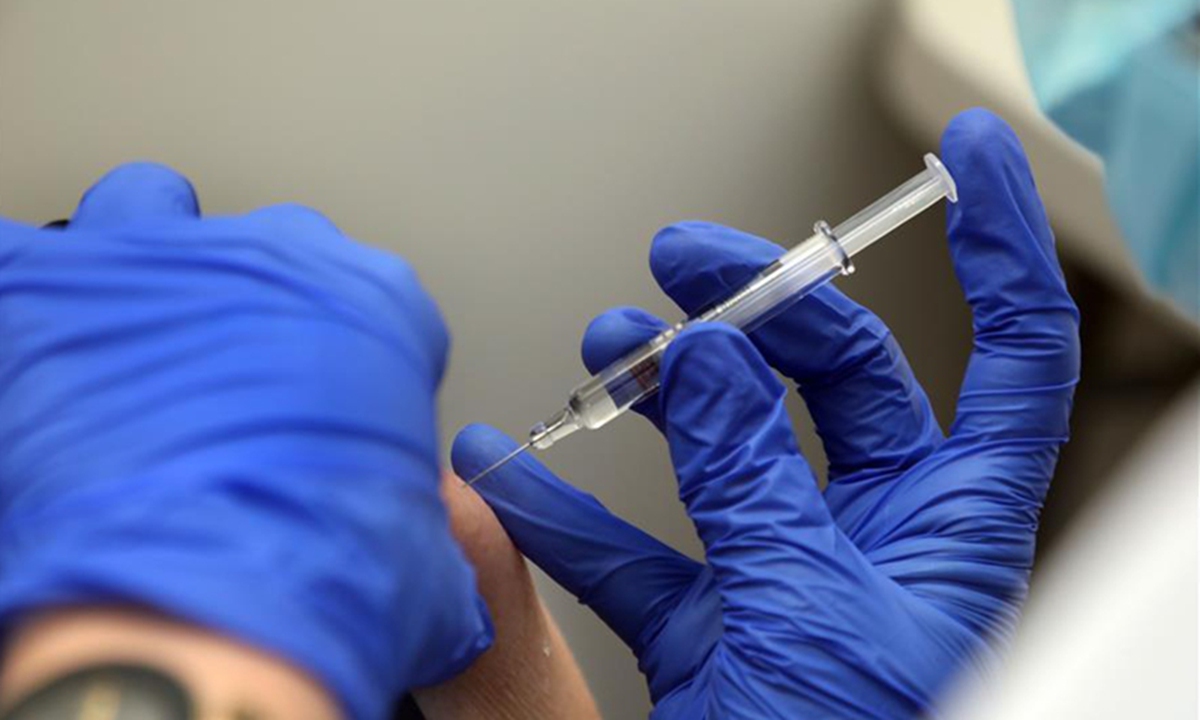Politics shouldn’t cast shadow on choice of COVID-19 vaccines
Source: Global Times Published: 2020/10/25 19:43:40

Photo: Xinhua
A potential coronavirus vaccine from China appears to have set off a controversy in Brazil.Brazilian health regulator Anvisa on Friday authorized the import of 6 million doses of the CoronaVac vaccine that Chinese biopharmaceutical company Sinovac is developing, marking a fresh turn days after President Jair Bolsonaro said his country would not buy vaccine from China, according to media reports.
Meanwhile, remarks by Sao Paulo Governor João Doria suggested there might be political wrestling behind the country's confusing attitude toward a potential Chinese vaccine. Doria said on Friday that "Anvisa told him it will not bow to political pressure over the approval of a potential coronavirus vaccine," according to a Reuters report.
Whether the so-called political pressure comes from Brazil's domestic politics or global geopolitical factors, fighting the pandemic is an issue of public health, which already involves too many social, economic and technological factors to consider and weigh, and there is no need to engage in political struggles that are not constructive.
The COVID-19 pandemic is the biggest public health crisis facing the world, and vaccines are regarded as the most powerful weapon in overcoming the crisis and restarting the global economy. It is because of the great expectations people have for the coronavirus vaccines that the political stakes cannot be ignored.
However, despite the political significance of vaccines, it doesn't mean that countries should make their vaccine choices based on political reasons, disregarding scientific and technological results and facts. If anything, excessive political pressure will only have a negative impact on the safety and efficacy of potential vaccines. It doesn't matter which country's research team develops a vaccine as long as it is safe and effective.
From the perspective of China, whether other countries will or won't buy coronavirus vaccines produced by Chinese companies doesn't affect the reliability and development progress of its vaccines. At present, China is leading vaccine development with a total of 13 candidates in clinical trials, out of which three inactivated vaccines and one adenovirus vector vaccine have entered phase three trials. Tian Baoguo, deputy head of the Department of Science and Technology for Social Development of the Ministry of Science and Technology, told reporters last week that nearly 60,000 people have been injected with China's COVID-19 vaccines and no one has reported severe adverse reactions. Experts even predict that China's annual coronavirus vaccine production capacity may reach 610 million doses by the end of the year.
But such encouraging progress has been hyped by some in the West as evidence that China is prepared to ramp up its "vaccine diplomacy", which reflects nothing but their obsession with geopolitics. They turn a blind eye to the fact that China has already promised to make Chinese COVID-19 vaccines a global public good once they are successfully developed and put into use. Any attempt to hype the vaccines as a political and diplomatic game would be misleading and irresponsible when it comes to human life.
It is up to various governments to decide which vaccines to use, and we believe that the procurement will be based on cautious safety reviews and approvals. But still, regulators should be advised that whatever the political stance their governments take, a pragmatic approach is needed on the vaccine choice for the sake of public health and safety.
Posted in: GT VOICE